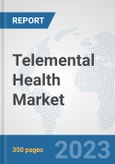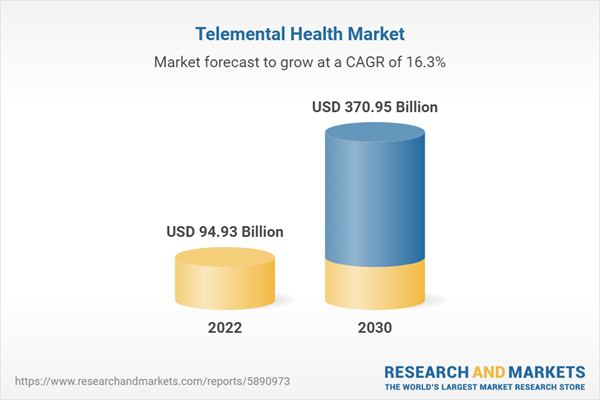Telemental health, also known as telepsychiatry or teletherapy, is the delivery of mental health services and support through telecommunications technology. It allows individuals to receive mental health care remotely, typically through videoconferencing, phone calls, or online messaging platforms. Telemental health has gained significant traction in recent years due to its potential to overcome geographical barriers, increase accessibility, and provide more convenient options for individuals seeking mental health support. Additionally, the scope of telemental health is the provision of care to underserved and rural populations. In many remote or medically underserved areas, access to mental health professionals is limited, leading to unmet mental health needs. Telemental health bridges this gap by enabling individuals in these regions to connect with mental health providers located elsewhere, thereby expanding access to care. It not only enhances access but also reduces the stigma associated with seeking mental health support, as individuals can receive treatment from the privacy of their homes. Moreover, telemental health has proven effective in crisis intervention, ongoing therapy, and even preventative mental health services, making it a vital tool in addressing mental health disparities and improving overall well-being.
The telemental health market is propelled by a growing demand for remote mental health services, driven in part by the COVID-19 pandemic. People seek accessible and convenient options for therapy and counseling, leading to a surge in telepsychiatry and teletherapy solutions to meet this demand. Additionally, advancements in technology and the proliferation of mobile apps have greatly enhanced the convenience of mental health consultations, fueling the growth of the telemental health market. These innovations enable individuals to access therapy and support easily, making mental health care more accessible and reducing barriers to seeking help. However, limited access to high-speed internet and digital devices presents a significant barrier to the expansion of the telemental health market. It hinders individuals in underserved or rural areas from participating in remote mental health services, creating disparities in access to care and impeding the market's potential growth. Although, expanding reimbursement policies and increasing acceptance of telehealth within the healthcare system create favorable opportunities for the telemental health market. As insurance coverage and regulations evolve to support remote mental health services, providers and patients alike are more inclined to embrace teletherapy, fostering market growth and accessibility.
The largest market share region in the telemental health market is North America, primarily driven by the United States. This region experienced substantial growth due to the widespread adoption of telehealth technologies, favorable reimbursement policies, and a high demand for mental health services. Moreover, the fastest-growing region in the telemental health market is Asia-Pacific. This growth was attributed to several factors, including the increasing awareness of mental health, the expansion of telecommunication infrastructure, and the rising prevalence of mental health issues. Countries such as India and China witnessed significant growth in telemental health adoption as they sought to address mental health challenges among their vast populations.
Report Findings
1) Drivers
- Increasing demand for remote mental health services drives the telemental health market.
- Advancements in technology and mobile apps facilitating convenient mental health consultations which can drive the telemental health market.
2) Restraints
- Limited access to high-speed internet and digital devices poses a restraint to telemental health market growth.
3) Opportunities
- Expanding reimbursement policies and greater acceptance of telehealth create opportunities for the telemental health market.
Research Methodology
A) Primary Research
The primary research involves extensive interviews and analysis of the opinions provided by the primary respondents. The primary research starts with identifying and approaching the primary respondents, the primary respondents are approached include1. Key Opinion Leaders
2. Internal and External subject matter experts
3. Professionals and participants from the industry
The primary research respondents typically include
1. Executives working with leading companies in the market under review2. Product/brand/marketing managers
3. CXO level executives
4. Regional/zonal/ country managers
5. Vice President level executives.
B) Secondary Research
Secondary research involves extensive exploring through the secondary sources of information available in both the public domain and paid sources. Each research study is based on over 500 hours of secondary research accompanied by primary research. The information obtained through the secondary sources is validated through the crosscheck on various data sources.The secondary sources of the data typically include
1. Company reports and publications2. Government/institutional publications
3. Trade and associations journals
4. Databases such as WTO, OECD, World Bank, and among others.
5. Websites and publications by research agencies
Segment Covered
The global telemental health market is segmented on the basis of type, offering, mental disorders, mode of delivery, and end user.The Global Telemental Health Market by Type
- Telepsychology
- Telepsychiatry
- Telebehavioral Health
The Global Telemental Health Market by Offering
- Services
- Systems
The Global Telemental Health Market by Mental Disorders
- Panic Disorder
- Obsessive-compulsive Disorder
- Depression
- Post-traumatic Stress Disorder
- Others
The Global Telemental Health Market by Mode of Delivery
- Web-based Delivery Mode
- Cloud-based Delivery Mode
- On-premise Delivery Mode
The Global Telemental Health Market by End User
- Providers
- Payers
- Patients
Company Profiles
The companies covered in the report include- Cisco Systems, Inc.
- Teladoc Health, Inc.
- Talkspace
- WeCounsel
- MDLIVE
- Doctor on Demand by Included Health, Inc.
- AMD Global Telemedicine
- Koninklijke Philips N.V.
- Tracxn Technologies Limited
- GoodTherapy, LLC
What does this Report Deliver?
1. Comprehensive analysis of the global as well as regional markets of the telemental health market.2. Complete coverage of all the segments in the telemental health market to analyze the trends, developments in the global market and forecast of market size up to 2030.
3. Comprehensive analysis of the companies operating in the global telemental health market. The company profile includes analysis of product portfolio, revenue, SWOT analysis and latest developments of the company.
4. Growth Matrix presents an analysis of the product segments and geographies that market players should focus to invest, consolidate, expand and/or diversify.
Table of Contents
Companies Mentioned
- Cisco Systems, Inc.
- Teladoc Health, Inc.
- Talkspace
- WeCounsel
- MDLIVE
- Doctor on Demand by Included Health, Inc.
- AMD Global Telemedicine
- Koninklijke Philips N.V.
- Tracxn Technologies Limited
- GoodTherapy, LLC
Table Information
| Report Attribute | Details |
|---|---|
| No. of Pages | 350 |
| Published | June 2023 |
| Forecast Period | 2022 - 2030 |
| Estimated Market Value ( USD | $ 94.93 Billion |
| Forecasted Market Value ( USD | $ 370.95 Billion |
| Compound Annual Growth Rate | 16.2% |
| Regions Covered | Global |
| No. of Companies Mentioned | 10 |









